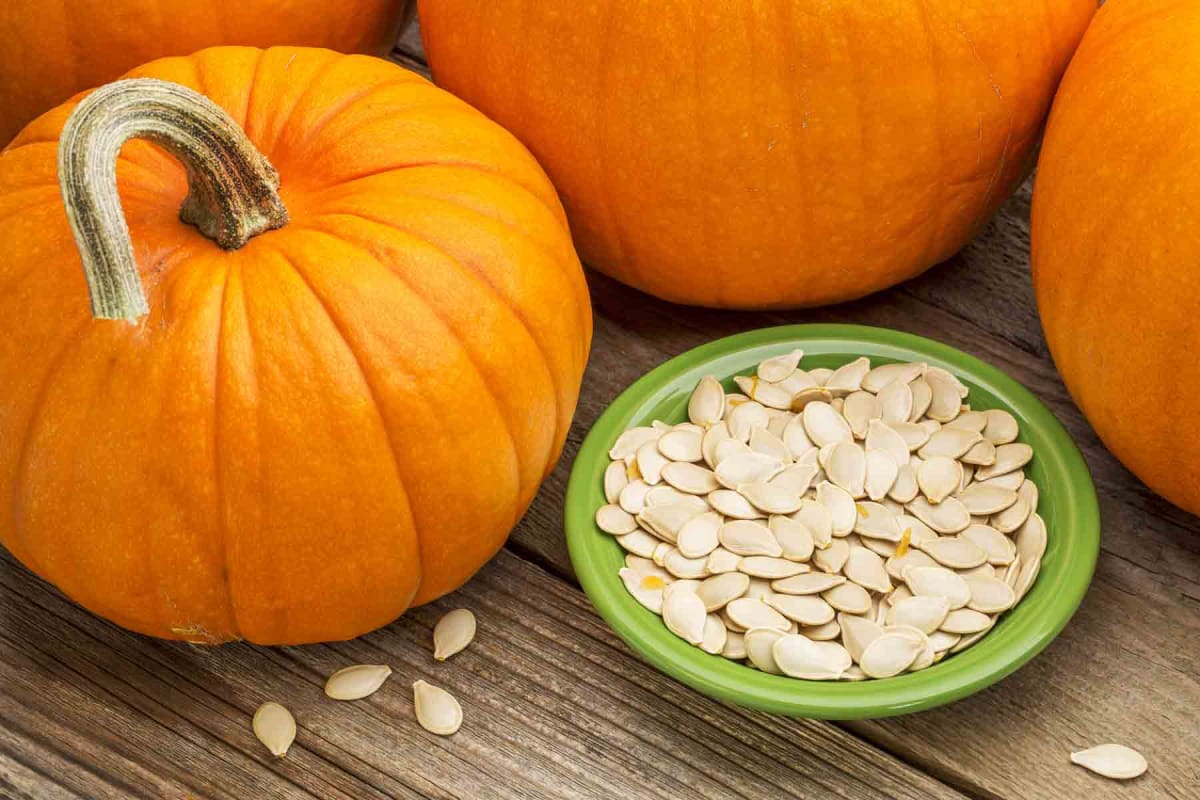
Can dogs eat pumpkin seeds?
Can dogs eat pumpkin seeds?
Can dogs have pumpkin seeds?
Pumpkin seeds are a popular snack for people, but many dog owners wonder if they’re safe for their furry friends. The good news is dogs can eat pumpkin seeds when the seeds are prepared properly and given in moderation. Let’s explore the benefits, risks, and best practices for feeding pumpkin seeds to your dog.
Are pumpkin seeds good for dogs?
Pumpkin seeds do contain nutrients that can be beneficial for dogs. These nutritious little seeds are filled with vitamin K, iron, magnesium, phosphorous, manganese, and zinc. Pumpkin seeds are a great source of fiber, minerals, vitamins, proteins, and antioxidants.
However, it's important to note that while pumpkin seeds pack a nutritional punch for humans, the same can't be said for your pup. Dogs don't digest seeds the same as humans, and many of the nutrients aren't available or beneficial to dogs.
Pumpkin seeds can be an occasional source of healthy fat and omega-3 fatty acids, but they're not quite the same "superfood" for dogs as humans.
Do pumpkin seeds kill parasites?
There's a common belief that pumpkin seeds can help eliminate intestinal parasites in dogs, but the scientific evidence is mixed. Pumpkin seeds contain the amino acid cucurbitin, which paralyzes worms. While some studies have shown the ability of pumpkin seeds to get rid of intestinal worms, many veterinarians disagree with this claim.
The only proven way to get rid of intestinal parasites (such as tapeworms and roundworms) in dogs is to get a prescription dewormer from your vet. If you suspect your dog has parasites, it's always best to consult with your veterinarian for proper diagnosis and treatment.
Can pumpkin seeds be bad for dogs?
While pumpkin seeds are generally safe, there are some risks to be aware of when feeding them to your dog.
Because dogs' digestive systems aren't designed to digest seeds the way humans are, feeding them too many could lead to an upset stomach, vomiting, or diarrhea.
Pumpkin seeds have a high fat content, and eating too many puts your dog at risk of developing pancreatitis (inflammation of the pancreas). This is a serious condition and causes severe abdominal pain and vomiting.
While small amounts may do little harm, consuming too many pumpkin seeds could cause a dog to experience diarrhea, vomiting, excessive thirst, seizures, or worse.
Pumpkin seed shells are indigestible by dogs, making them a potential choking hazard and risk of causing blockages.
How to safely prepare pumpkin seeds for your dog
If you'd like to share pumpkin seeds with your dog, follow these steps to ensure they're safe:
Remove the shells: Pumpkin seed shells can be choking hazards and are tough for dogs to digest. Boiling or rolling the seeds helps separate the edible parts from the shells.
Roast them properly: Your dog can consume pumpkin seeds that are raw or dry roasted. Do not add salt or cooking oils when preparing pumpkin seeds for dogs, as certain additives can cause stomach upset or increase the risk of dehydration.
Consider grinding them: The best way to give your dog the benefit of pumpkin seeds is to grind them and add them to their food. Grinding pumpkin seeds into a powder can help with digestion and lower the risk of intestinal blockages or irritation.
Store properly: Use an air-tight container for storage after preparing the seeds.
How many pumpkin seeds can I give my dog?
Moderation is key when feeding pumpkin seeds to your dog. Small dogs can safely enjoy 3 to 5 seeds, medium dogs can have 5 to 10, and large dogs can munch on 10 to 20 seeds in a day.
Remember, if you have an especially small dog or a puppy, it's best to ask your vet before incorporating pumpkin seeds into their diet at all. The same goes for any dog with digestive health problems or known food allergies.
Other safe fruits
While we've focused on pumpkin seeds, it's worth noting that dogs can safely enjoy many other fruits and vegetables. Plain pumpkin flesh is more beneficial for dogs than the seeds in most cases. It's packed with nutrients and fiber, which can help with mild diarrhea, constipation, and support your pup's overall health.
Other safe fruits dogs can eat include apples (without seeds), blueberries, strawberries, and bananas in moderation. Always introduce new foods gradually and monitor your dog for any adverse reactions.
Remember, while treats like pumpkin seeds can be a nice addition to your dog's diet, they should make up no more than 10% of their daily caloric intake. A balanced, high-quality dog food should remain the foundation of their nutrition.